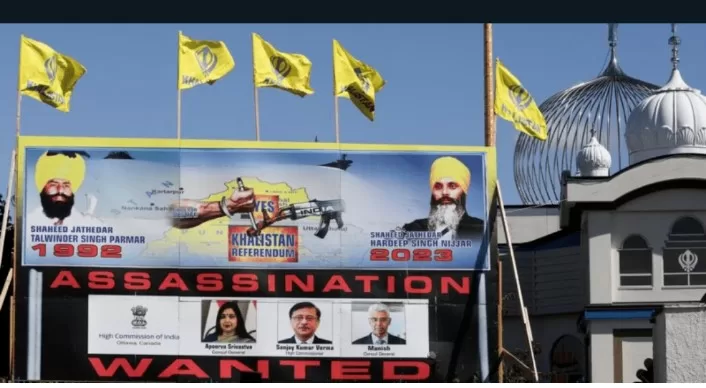New Delhi: Tensions between India and Canada escalated as India accused the Canadian government of harboring terrorists. The dispute revolves around the alleged killing of Khalistani terrorist Hardeep Singh Nijjar, sparking a diplomatic rift between the two nations.
Ministry of External Affairs (MEA) spokesperson Arindam Bagchi addressed the media, emphasizing that the broader issue at hand concerns terrorism, terror financing, and the provision of safe havens to terrorists overseas.
Bagchi stated, “While terrorism is being funded and supported by our western neighbor, Pakistan, the issue of providing safe havens and operational spaces for terrorists exists abroad, including in Canada.”
“We urge the Canadian government not to grant safe haven to terrorists and to take action against those facing terrorism charges or to extradite them to India to face trial,” he added.
Furthermore, India asserted that it is Canada’s international reputation that should be of concern. “If we discuss reputational damage, Canada should scrutinize its growing image as a sanctuary for terrorists, extremists, and organized crime,” Bagchi remarked.
India has sought the extradition of approximately 20-25 individuals over the years, but Canada’s response has not been cooperative.
India has not received any specific information from Canada regarding terrorist activities or the killing of Khalistan Tiger Force (KTF) chief Hardeep Singh Nijjar, who was assassinated by two unidentified assailants outside a gurdwara on June 18 this year, according to Bagchi.
“Canada has not shared any specific information in this case, neither then nor now. We are willing to consider any specific information they provide, but so far, we have received no information from Canada,” Bagchi stated.
Nonetheless, India has shared highly specific information regarding criminal activities on Canadian soil, but no action has been taken by Canada.
Canadian Prime Minister Justin Trudeau had accused India of involvement in Nijjar’s killing, which further strained relations between the two nations. When asked about these allegations, the MEA spokesperson characterized them as “politically driven” and tinged with bias.
Bagchi indicated that the MEA had communicated its views on the diplomatic dispute with Canada to its key allies. He also noted that the Indian High Commission and consulates in Canada were temporarily unable to process visa applications due to security concerns.







